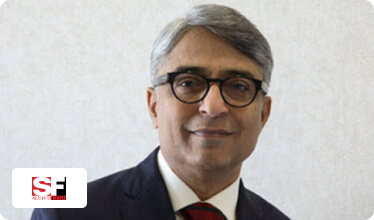In today’s economy of ever-tightening job markets and increased workplace stress, focusing on the positive has become imperative. Creating a positive morale at the workplace is the key to boost employee performance and productivity. In fact, the benefits have a broader reach than simply the bottom line.
‘Flourishing’ is not an adjective.
Positive psychology can impact various areas from talent retention to employee well-being. Workplaces that embrace positive psychology not only get more done, but also dramatically improve corporate culture. In other words, they flourish.
The key reason why they flourish is because people are valued for who they are as well as what they contribute.
According to Dr. Lynn Soots, Professional Educator and Positive Psychologist, “Flourishing is the product of the pursuit and engagement of an authentic life, that brings inner joy and happiness through meeting goals, being connected with life’s passions, and relishing in accomplishments through the peaks and valleys of life.”
In other words, “flourishing” is not an adjective. It isn’t a trait. It doesn’t exist without action. It is a pursuit, an engagement, an effort to stay connected with yourself and your work. It is an effort to continue to grow in every circumstance.
As a student and believer of positive psychology, I have had extensive exposure to its application in corporate leadership in the past 25 years. Dr. Martin Seligman, former head of American Psychological Association, and well regarded as the founding father of Positive Psychology, outlines the PERMA model as the cause to creating a life and workplace environment that is ‘flourishing’:
- Positive Emotions
- Engagement
- Relationship
- Meaning
- Accomplishments
According to Dr. Seligman, we can build a state of life that is flourishing by diligently maintaining the five aspects of the PERMA model. This means consciously directing our emotions towards positivity, engaging with the world and with everything we love, building healthy relationships, using our lives for a positive purpose, and consistently “relishing in accomplishments”, as Dr. Soots also put it.
Embracing positive psychology at work
Organizations that embrace positive psychology typically do so to create balanced and harmonious office environments, where individuals and to-do lists work seamlessly together. The financial gains are a benefit, certainly, but must never be seen as more important than the employees actually doing the work.
I have seen how psychological capital plays a vital role in aspects like organizational atmosphere, authentic leadership, communication, employee health, job satisfaction, and performance, among many others.
Take the example of Google, Facebook and Adobe. These organizations have implemented positive psychology practices by putting trust in employees. From Google’s Project Aristotle to Adobe’s no employee ratings practice, positive psychology goes a long way towards a happy company culture, because trust leads to independent employees who help the company grow.
In one of my past organizations we abolished the old leave policy and created a need-based leave policy. With the new policy, employees were allowed to take leaves based on their needs. The immediate senior or reporting manager would take a decision and grant the leave. This approach helped establish trust in employees’ minds and eventually we found out that leaves availed were much lesser than earlier.
Companies that have implemented positive psychology have largely experienced a return on investment well worth the cost. People are happier when they feel valued and respected. This translates into better mental health, as well as better productivity. The corporate bottom line stands to benefit when workers actually enjoy being at work although this is not the ultimate goal.
Measuring positive psychology
While positive psychology has an integral role to play in the modern workplace, the key lies in measuring it.
This where psychological capital, better known as PsyCap Positive comes in. PsyCap was a term first coined by Fred Luthans, a management professor and a pioneering name in Positive Organizational Behavior (POB).
Four Psychological Resources were considered by Luthans and his colleagues to best measure Positive Organizational Behavior – Hope, Efficacy, Optimism and Resilience. Simple describing these, we have:
- Hope – as a positive motivational state where there is goal-oriented determination and proactive planning towards achieving the said goal.
- Self efficacy – as an individual’s confidence in her/his ability to achieve set goals.
- Optimism – as the will to make positive assessments regarding the present and the future.
- Resilience – as the strength to take a constructive approach to coping with uncertainty, conflict, workload or distress.
Research has determined that these resources are both multiplicative as well as synergistic. This means that the presence of all four of them has a much greater effect than the sum of each individual effect.
It is therefore, crucial for any leadership function to expand the leadership team’s psychological resources and cultivate an environment where people can thrive.
According to Gorgievski and Hobfoll, “Although all leadership journeys are different, one thing is for sure – there will be roadblocks, interruptions, disruptions and detours. Psychological resources will provide the inner energy necessary to meet the demands of a changing environment.”
Research has proven the effectiveness of adopting the PsyCap variable to measure POB. Leaders with high PsyCap not only tend to flourish, but are also in an apt position to support and offer guidance to their employees as well as colleagues. PsyCap helps recognize and create leaders who can be emulated, who can create an atmosphere that welcomes change, and who can intelligently respond to pressure, chronic demands, and even authority.
That is how, organizations today take a rounded view of office dynamics, treat employee well-being as not just important, but also closely connected to overall corporate health.
Positive psychology emphasizes individuals over tasks and work-related skills, and trains managers to see employees as people with specific interests and abilities. When employees feel valued as unique individuals, they give more of their energy and attention to their jobs, often subconsciously.
In essence, positive psychology is the key to striking the right balance in the workplace, which includes serving as a role model, reinforcing shared values, and leveraging problems as opportunities.
Slowly introducing the simple concepts of hope, efficacy, optimism and resilience can have large and far-reaching effect on the development of any organization or corporate structure.
This is how, I believe, flourishing leaders build (and tend to) flourishing organizations.











